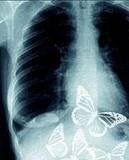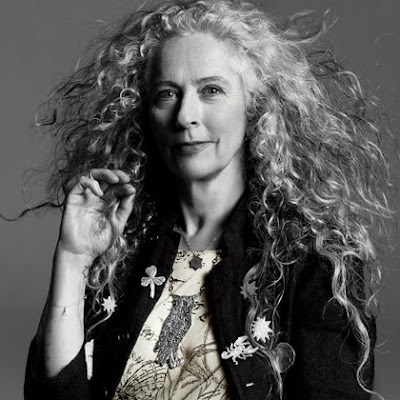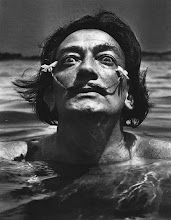сряда, 6 януари 2010 г.
Jerome Kern
In 1930, Kern was placed under contract by Warner Brothers to produce a series of musicals. The first product of that contract was Men of the Sky which was released in 1931 but largely ignored due to public backlash against the early glut of film musicals that greeted the advent of film sound. Consequently, Warner Bros. bought out his contract and he returned to the stage.
In 1935, when musical films had become popular once again, Kern relocated to Hollywood, although he continued working on Broadway productions as well. This second phase of Kern's Hollywood career was greeted with considerably greater artistic and commercial success, including the 1936 film version of Show Boat. For Swing Time (starring Ginger Rogers and Fred Astaire), he wrote "The Way You Look Tonight" (with lyrics by Dorothy Fields), which won the Academy Award in 1936 for the best song. Other songs in the film include "A Fine Romance", "Pick Yourself Up", and "Never Gonna Dance". In 1940, Kern and Hammerstein wrote "The Last Time I Saw Paris", in homage to the French city just recently occupied by the Germans. Originally a hit for Tony Martin, the song was used in the film Lady Be Good (1941) and won another Oscar for Best Song - the only time a song not written for the film it appears in won the Oscar. (It would later inspire the title of the 1954 film The Last Time I Saw Paris.) In 1944, Kern teamed up with Ira Gershwin to write the songs for one of his best-remembered film musicals, Cover Girl, starring Rita Hayworth and Gene Kelly. It featured the classic song "Long Ago (and Far Away)", and an unusual instrumental musical number in which Kelly, throughtrick photography, danced with himself. That same year Kern also wrote the music for songs in Universal Pictures' Deanna Durbin musical comedy, Can't Help Singing.
понеделник, 4 януари 2010 г.
Kiki Smith
Kiki Smith (born January 18, 1954, in Nuremberg, Germany) is an American artist classified as a feminist artist, a movement with beginnings in the twentieth century. Her Body Art is imbued with political significance, undermining the traditional erotic representations of women by male artists, and often exposes the inner biological systems of females as a metaphor for hidden social issues. Her work also often includes the theme of birth and regeneration, sustenance, and frequently has Catholic allusions. Smith has also been active in debate over controversies such as AIDS, gender, race, and battered women.
Smith began sculpting in the late 1970s. She is best known for her sculptures; however, she creates pieces in a variety of media. She was an active member of the artist's group Colab






Архив на блога
-
►
2011
(9)
- ► 10/16 - 10/23 (1)
- ► 01/30 - 02/06 (1)
- ► 01/23 - 01/30 (2)
- ► 01/16 - 01/23 (4)
- ► 01/09 - 01/16 (1)
-
▼
2010
(13)
- ► 09/19 - 09/26 (1)
- ► 06/06 - 06/13 (1)
- ► 03/14 - 03/21 (3)
- ► 02/28 - 03/07 (1)
- ► 01/31 - 02/07 (1)
- ► 01/17 - 01/24 (2)
- ► 01/10 - 01/17 (1)
-
►
2009
(79)
- ► 12/27 - 01/03 (1)
- ► 12/20 - 12/27 (2)
- ► 12/13 - 12/20 (2)
- ► 12/06 - 12/13 (4)
- ► 10/25 - 11/01 (1)
- ► 10/04 - 10/11 (1)
- ► 09/27 - 10/04 (1)
- ► 09/20 - 09/27 (4)
- ► 08/02 - 08/09 (1)
- ► 07/19 - 07/26 (1)
- ► 07/12 - 07/19 (1)
- ► 06/28 - 07/05 (2)
- ► 06/21 - 06/28 (1)
- ► 06/14 - 06/21 (1)
- ► 05/24 - 05/31 (1)
- ► 05/17 - 05/24 (4)
- ► 05/10 - 05/17 (3)
- ► 05/03 - 05/10 (4)
- ► 04/26 - 05/03 (7)
- ► 04/19 - 04/26 (6)
- ► 04/05 - 04/12 (3)
- ► 03/29 - 04/05 (7)
- ► 03/22 - 03/29 (2)
- ► 03/08 - 03/15 (3)
- ► 03/01 - 03/08 (4)
- ► 01/25 - 02/01 (1)
- ► 01/18 - 01/25 (2)
- ► 01/11 - 01/18 (3)
- ► 01/04 - 01/11 (6)
-
►
2008
(11)
- ► 12/28 - 01/04 (1)
- ► 12/14 - 12/21 (1)
- ► 11/16 - 11/23 (9)
































